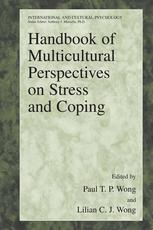

Most ebook files are in PDF format, so you can easily read them using various software such as Foxit Reader or directly on the Google Chrome browser.
Some ebook files are released by publishers in other formats such as .awz, .mobi, .epub, .fb2, etc. You may need to install specific software to read these formats on mobile/PC, such as Calibre.
Please read the tutorial at this link: https://ebookbell.com/faq
We offer FREE conversion to the popular formats you request; however, this may take some time. Therefore, right after payment, please email us, and we will try to provide the service as quickly as possible.
For some exceptional file formats or broken links (if any), please refrain from opening any disputes. Instead, email us first, and we will try to assist within a maximum of 6 hours.
EbookBell Team

4.3
68 reviewsIn recent years, Western psychologists have recognized that their prevailing views of psychology do not always translate worldwide—and that no culture has a monopoly on either stress or coping. The Handbook of Multicultural Perspectives on Stress and Coping was created to address this realization. This unique volume moves beyond simple comparisons of behaviors in other countries by clarifying critical concepts in stress and coping, analyzing and synthesizing vast amounts of global data, and identifying constructs and methodologies necessary for meaningful cross-cultural research.
An international, multiethnic panel of forty-five contributors presents elegant studies of stress, survival, and resilience as cultures evolve and countries interact, including:
• Personal transformation as a coping strategy
• Psychological skills that enhance intercultural adjustment
• Individual versus collectivist values in coping
• Buddhist and Taoist traditions in coping
• The cumulative effects of historical, environmental, and political stressors on nations in the Middle East
• Specific cross-cultural perspectives, from Latino-American families to Canadian aboriginal peoples to minority university students
The editors have assembled a vital store of knowledge, raising crucial implications for clinicians working with immigrant/international populations, and evaluating the current state of theory, research, and assessment. The Handbook documents major steps toward scientific advancement—and human understanding.